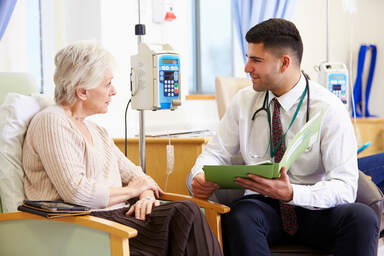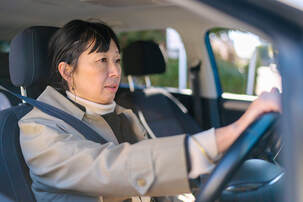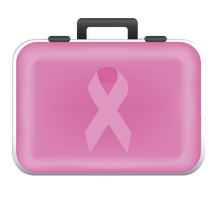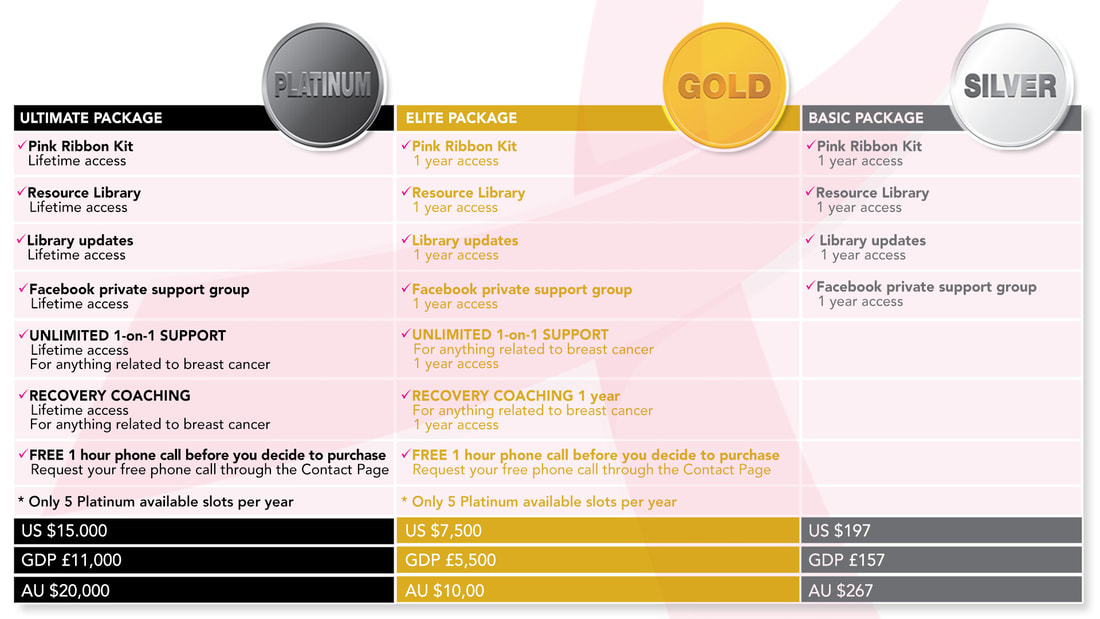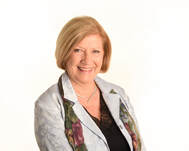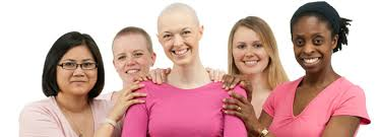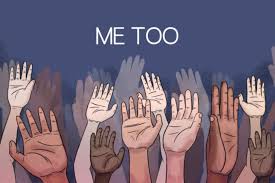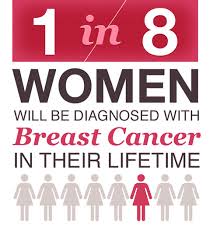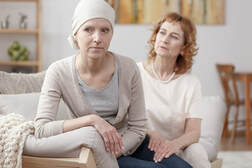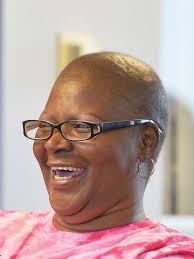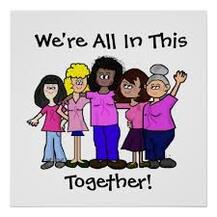Tips & solutions to speed up your mastectomy recovery
Physically, emotionally & sexually.
What your doctors don't have time to tell you!
If you have never walked closely beside someone who has had breast cancer treatments, then it's very possible you are unaware (and scared) of the challenges that most patients and loved ones have to deal with.
With any stressful time in your life, good or bad, (such as weddings or student examinations)... there is a time of adjustment and issues to deal with.
It's highly likely that you (and those who have been told about your diagnosis) are frantically searching on the internet
for answers for the issues above. It can be frustrating and confusing, not to mention overwhelming!
With any stressful time in your life, good or bad, (such as weddings or student examinations)... there is a time of adjustment and issues to deal with.
It's highly likely that you (and those who have been told about your diagnosis) are frantically searching on the internet
for answers for the issues above. It can be frustrating and confusing, not to mention overwhelming!
YOUR breast cancer journey
Fear of the unknown is much worse than being informed and prepared.
Knowledge is power!
With appropriate information, you will feel empowered to ask the doctors the right questions and be confident to agree on the correct breast cancer treatment choices...and feel in control.
The doctors are rightly concentrating on your breast cancer treatments, so do not have time to tell you everything you need to know about how to make the best recovery possible.
Physically, emotionally and sexually!
Many ladies feel more secure if they can stay in the 'driver's seat' of their breast cancer journey.
Knowledge is power!
With appropriate information, you will feel empowered to ask the doctors the right questions and be confident to agree on the correct breast cancer treatment choices...and feel in control.
The doctors are rightly concentrating on your breast cancer treatments, so do not have time to tell you everything you need to know about how to make the best recovery possible.
Physically, emotionally and sexually!
Many ladies feel more secure if they can stay in the 'driver's seat' of their breast cancer journey.
These are typical questions and stages that mastectomy patients face
1. The shock of the diagnosis
2. How and whom to tell…my family, children, friends, employer, colleagues etc
3. Coping with fear and stress
4. Where to get appropriate information
5. Who to turn to for ongoing support?
6. Treatment options. Mastectomy, chemotherapy, radiation etc
7. What questions should I be asking my doctors?
8. Choosing the treatments that I will be happy with both now and later
9. Should I get a second opinion?
10. How much time will I have to take off work?
11. If I have a mastectomy, how will that affect my life sexually, physically and emotionally?
12. How can I regain the function, movement and strength in my shoulder adjacent to the mastectomy?
13. What can I do to help myself?
14. Is there research that shows how I can make treatments more effective?
15. Does prayer make any difference?
16. Can I use complementary and alternative medicine?
17. What is lymphedema? Am I at risk and how do I handle it?
18. Will I have to wear a breast prosthesis, different clothes, bras and swimwear for the rest of my life?
19. Will breast cancer treatments affect my fertility?
20. How to keep myself nourished when I'm nauseous and don't want to eat?
2. How and whom to tell…my family, children, friends, employer, colleagues etc
3. Coping with fear and stress
4. Where to get appropriate information
5. Who to turn to for ongoing support?
6. Treatment options. Mastectomy, chemotherapy, radiation etc
7. What questions should I be asking my doctors?
8. Choosing the treatments that I will be happy with both now and later
9. Should I get a second opinion?
10. How much time will I have to take off work?
11. If I have a mastectomy, how will that affect my life sexually, physically and emotionally?
12. How can I regain the function, movement and strength in my shoulder adjacent to the mastectomy?
13. What can I do to help myself?
14. Is there research that shows how I can make treatments more effective?
15. Does prayer make any difference?
16. Can I use complementary and alternative medicine?
17. What is lymphedema? Am I at risk and how do I handle it?
18. Will I have to wear a breast prosthesis, different clothes, bras and swimwear for the rest of my life?
19. Will breast cancer treatments affect my fertility?
20. How to keep myself nourished when I'm nauseous and don't want to eat?
Pink Ribbon Kit
|
The 'Pink Ribbon Kit' aims to help YOU to tackle the unexpected challenges that most patients face throughout their breast cancer journey ... and for months after treatments are completed. The Kit is available to you as a lifetime resource and designed to assist you from diagnosis to the point when breast cancer is no longer an issue in your life. The ‘long shadow’ after breast cancer can include lymphedema, body image and sexual issues, depression, changed relationships... The Pink Ribbon Kit includes:
The Resource Library has links to the best international breast cancer websites and unique multi-media resources … saving you time (and stress) instead of frantically searching on the internet for answers to questions you were not expecting to ask! Learn from international health professionals and breast cancer survivors using the compendium of videos, radio interviews, e-books, audio, research articles and TV programs etc. Coupled with the FB support group, you will have solutions, tools and life skills, 24/7 to dip into before or during a challenge. You (the patient) can invite a loved one or personal VIP into the FB group. They often need as much support as yourself. Contributors to the Pink Ribbon Resource Library:
You are very welcome to join our international mastectomy recovery community! Click here to check out the contents of the Resource Library Click here to obtain your lifetime Pink Ribbon Kit Ladies who are single or have a partner who feels unable to support them throughout their treatment and recovery can choose the option of additional ‘one-on-one ' support. Enlightened health professionals know that you benefit from ongoing encouragement and information for at least the same time period as your treatments last. That means if your treatments lasted for one year, then you usually still need support and information for a year afterwards. Our aim is to help you to make the best recovery possible physically, emotionally and sexually. When your treatments are completed, the medical team may tell you to “Get on with your life now” ... but some ladies are left feeling abandoned, bewildered and possibly traumatised afterwards. At this point, some cancer support groups wish you luck and expect you to make room for new patients. The Mastectomy Recovery Centre is still ‘there for you’ until you no longer need us …although you might like to visit the FB support group from time to time to encourage ladies travelling on their breast cancer journey. |
|
If you choose the option of ‘one-on-one’, Trish Duke is your key support person and recovery coach who can communicate with you by email, WhatsApp, Skype, phone, Messenger etc.
Trish has been a qualified cancer support group facilitator for many years and treated breast cancer patients over four decades as a physiotherapist. (About)
This option has limited places to ensure adequate care and time for each person.
Applicants for 'one-on-one' support are accepted only after a chat with Trish to make sure that it's a right fit for you.
Contact Trish through the contact form to request a phone call to discuss the opportunity to take one of the five one-on-one slots available per year.
Click here to check out the contents of the Resource Library
Click here to obtain your lifetime Pink Ribbon Kit
Trish has been a qualified cancer support group facilitator for many years and treated breast cancer patients over four decades as a physiotherapist. (About)
This option has limited places to ensure adequate care and time for each person.
Applicants for 'one-on-one' support are accepted only after a chat with Trish to make sure that it's a right fit for you.
Contact Trish through the contact form to request a phone call to discuss the opportunity to take one of the five one-on-one slots available per year.
Click here to check out the contents of the Resource Library
Click here to obtain your lifetime Pink Ribbon Kit
Even the most independent and resourceful women choose not to struggle
through their breast cancer journey alone.
Men seem to like to go on a trip without maps and direction. It's more of an adventure!
However, it can be a shorter trip if they didn't get lost.
Women feel more secure and less stressed on a journey if they have a map or Sat Nav, accommodation booked ahead, spare clothes, cosmetics, drinks and snacks and so on … that's why we carry such big bags!
Typically, if we have problems, men might listen to us talk, but then come up with way to fix it. Us girls are wired differently, aren't we?! That is why often just a listening ear is all we need.
Ladies who travel a mastectomy journey with someone who has professional or personal experience of breast cancer, find it easier to relax and even find enjoyable times and blessings along the way. It's not all doom and gloom!
Everyone has a different journey. There is no "one size fits all" rehabilitation program. However, everyone needs appropriate information and caring support. That usually means less stress, pain, frustration, fatigue and long-term complications, physically, sexually and emotionally.
However, it can be a shorter trip if they didn't get lost.
Women feel more secure and less stressed on a journey if they have a map or Sat Nav, accommodation booked ahead, spare clothes, cosmetics, drinks and snacks and so on … that's why we carry such big bags!
Typically, if we have problems, men might listen to us talk, but then come up with way to fix it. Us girls are wired differently, aren't we?! That is why often just a listening ear is all we need.
Ladies who travel a mastectomy journey with someone who has professional or personal experience of breast cancer, find it easier to relax and even find enjoyable times and blessings along the way. It's not all doom and gloom!
Everyone has a different journey. There is no "one size fits all" rehabilitation program. However, everyone needs appropriate information and caring support. That usually means less stress, pain, frustration, fatigue and long-term complications, physically, sexually and emotionally.
At times like this, most of us start to pray…often with an "Oh, God. Help me" type prayer!
Scientific studies support the view that there is a link between the spiritual and physical health of patients.
(American Academy of Family Physicians)
"Studies have shown that prayer can help patients get better faster," (Duke University's Harold G. Koenig, M.D)
(American Academy of Family Physicians)
"Studies have shown that prayer can help patients get better faster," (Duke University's Harold G. Koenig, M.D)
Our private Facebook support group is different to most. We listen to and share your journey, but focus on recovery, what you are enjoying at the moment and helpful suggestions from the group members. A positive place to 'hang out'.
#Me Too |
|
|
Source:mhpcolorado.org
|
The medical team rarely ask you about your past emotional history.
They are concentrating on the mastectomy surgery and treatment plan. However, if you have experienced emotional or sexual abuse in your life, then exposing your breasts in a clinical setting can be more traumatic situation than you expected. This is another issue that we aim to help you with as part of your mastectomy recovery, with resources in the Library. |
Watch the video below to see Trish Duke with Jan whom she coached after a mastectomy and reconstruction from just home from hospital.
The Resource Library has a step by step video showing Jan's home exercise program. A printed exercise sheet from the hospital is usually not enough to give you the know-how and confidence to regain the use of your arm adjacent to the surgery.
Only a few weeks after surgery, Jan and her husband are enjoying a game of golf!
Trish is a physical therapist with clinical experience spanning four decades, helping her patients to recover as quickly as possible.
The Resource Library has a step by step video showing Jan's home exercise program. A printed exercise sheet from the hospital is usually not enough to give you the know-how and confidence to regain the use of your arm adjacent to the surgery.
Only a few weeks after surgery, Jan and her husband are enjoying a game of golf!
Trish is a physical therapist with clinical experience spanning four decades, helping her patients to recover as quickly as possible.
Because breast cancer is common now, have we become complacent and expect ourselves to "just get over it"? The answer is "NO"!
Research shows that anxiety, depression, fatigue, aches and pains, lymphedema, emotional and sexual issues can cast a 'long shadow' for years after treatments are over and your doctor tells you to "Go back to your life". Some ladies suffer variable levels of post-traumatic stress afterwards and need to acknowledge that and receive appropriate support.
Breast cancer is a journey that can take months or even years.
Whatever the expected outcome is, smart health professionals KNOW that you (and your loved ones) will do much better with relevant information and appropriate, compassionate support.
Research shows that anxiety, depression, fatigue, aches and pains, lymphedema, emotional and sexual issues can cast a 'long shadow' for years after treatments are over and your doctor tells you to "Go back to your life". Some ladies suffer variable levels of post-traumatic stress afterwards and need to acknowledge that and receive appropriate support.
Breast cancer is a journey that can take months or even years.
Whatever the expected outcome is, smart health professionals KNOW that you (and your loved ones) will do much better with relevant information and appropriate, compassionate support.
Unfortunately, only 5% of cancer patients find their way to a support group or person for various reasons.
That means that the other 95% are needlessly struggling on their own with issues that they don't want to bother the doctors with. What a crying shame! Especially for the ladies who are single or have a partner who is unable to support them adequately.
That means that the other 95% are needlessly struggling on their own with issues that they don't want to bother the doctors with. What a crying shame! Especially for the ladies who are single or have a partner who is unable to support them adequately.
Would you agree that it's wise (and less stressful) if you get appropriate information and compassionate support to enable your best recovery possible? Physically, emotionally and sexually.
Preferably before ... or when the 'bumps in the breast cancer road' show up you have a Resource Library 24/7
and a support group to help you through.
REV UP your mastectomy recovery!
As well as finding answers for your questions and sharing solutions for common challenges on your breast cancer journey, our aim is to bring you comprehensive information that helps you to achieve the best recovery possible… physically, emotionally & sexually.
That involves holistic healthcare for your body, soul and spirit, as each part of you affects the other parts.
Wouldn't you like to finish YOUR marathon breast cancer journey with life skills and inner strength that help you to tackle any challenge that has the nerve to show up in your life?!
That involves holistic healthcare for your body, soul and spirit, as each part of you affects the other parts.
Wouldn't you like to finish YOUR marathon breast cancer journey with life skills and inner strength that help you to tackle any challenge that has the nerve to show up in your life?!
